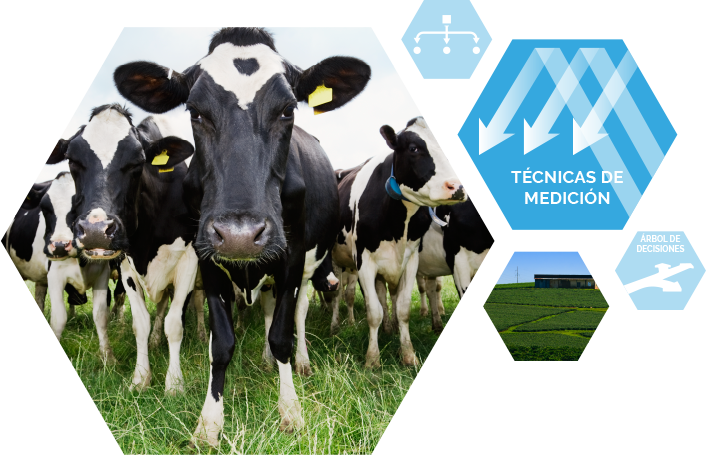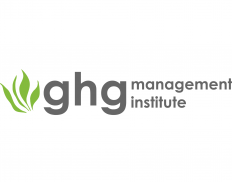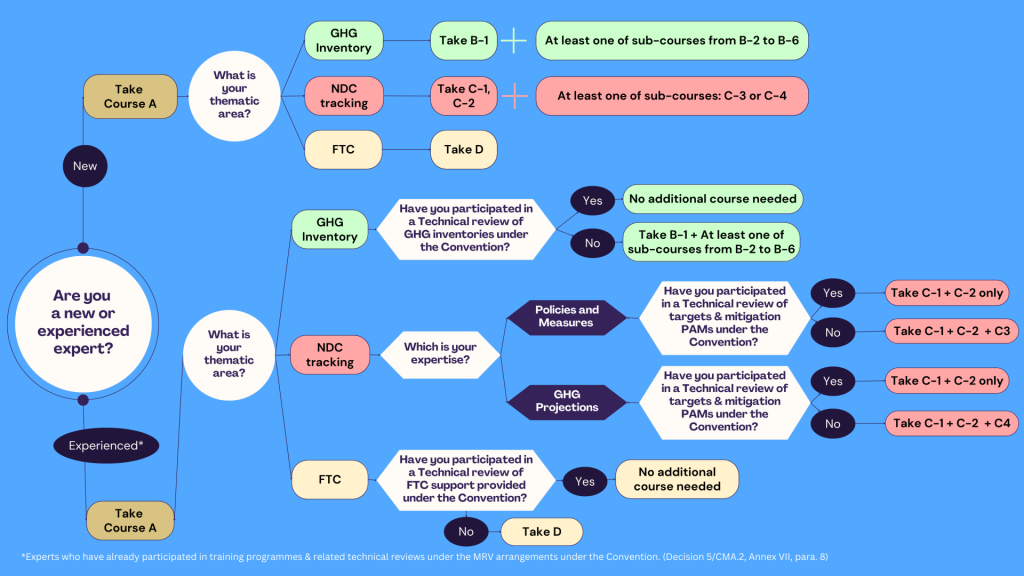Agricultural Greenhouse Gas Inventory training
New Zealand has developed a new GHG Inventory training web-based course, which focuses on the emissions that are currently reported under the agricultural sector. The course is split into 3 components:
- Climate change science
- International climate change policy
- The science behind agricultural GHG inventories.
These provide the foundation knowledge that support the development of National GHG Inventory’s and assessing of GHG emissions from the agricultural sector.
The courses can be taken at your own time and only require a free login to access.
E-Learning
Spanish Inventory Network
 The Network for Updating Emission values in Spanish Agriculture (NUEVA) has as main objective to analyze the state of emission factors (EF) of GHGs in the Spanish agricultural sector and propose measures that allow to improve their accuracy in the future. The global context of climate change and binding agreements following the Paris Summit Agreement make it necessary to address an in-depth study of EFs so that, on the one hand, the Spanish inventory system adequately reports according to the productive reality of the country and, on the other hand, so that mitigation strategies applied in any activity can be computed. This objective is clearly limited by the heterogeneity of production systems in Spain and the lack of a coordinated effort at national level to address the peculiarities of these systems. The Network NUEVA has a multidisciplinary team of 9 national and international reference centers in the study of GHG, crop management, Carbon and Nitrogen cycles in agricultural soils, animal feeding, excreta management, agroforestry systems, inventory calculation and integration and modeling at different scales.
The Network for Updating Emission values in Spanish Agriculture (NUEVA) has as main objective to analyze the state of emission factors (EF) of GHGs in the Spanish agricultural sector and propose measures that allow to improve their accuracy in the future. The global context of climate change and binding agreements following the Paris Summit Agreement make it necessary to address an in-depth study of EFs so that, on the one hand, the Spanish inventory system adequately reports according to the productive reality of the country and, on the other hand, so that mitigation strategies applied in any activity can be computed. This objective is clearly limited by the heterogeneity of production systems in Spain and the lack of a coordinated effort at national level to address the peculiarities of these systems. The Network NUEVA has a multidisciplinary team of 9 national and international reference centers in the study of GHG, crop management, Carbon and Nitrogen cycles in agricultural soils, animal feeding, excreta management, agroforestry systems, inventory calculation and integration and modeling at different scales.
The Network proposes (i) to agree on evaluation criteria for emission data and EFs, (ii) to review available methodologies, (iii) to explore alternative GHG estimation methodologies for Tier 3, (iv) to identify ‘gaps of knowledge’ (v) to strengthen the internationalization of Spanish groups in the area and (vi) to establish a direct communication with different official bodies and the agricultural sector. To this end, a plan of activities has been designed which includes: i) 3 thematic worshops, ii) stays of researchers and PhD students, iii) transfer of results via web, blog, youtube channel, iv) direct dialogue with public agents and private partnerships. Read more about Red Nueva.
Food and Agriculture Organization (FAO) national greenhouse gas (GHG) inventory for land use.
 The course gives a general introduction to greenhouse gas (GHG) reporting as well as an overview of the processes behind the production of GHG emissions from the land use sector. It provides guidance for calculating GHG emissions using the IPCC default method and emissions factors (Tier 1), and contains complementary exercises and questions.
The course gives a general introduction to greenhouse gas (GHG) reporting as well as an overview of the processes behind the production of GHG emissions from the land use sector. It provides guidance for calculating GHG emissions using the IPCC default method and emissions factors (Tier 1), and contains complementary exercises and questions.
It can be particularly useful for staff in national agencies to strengthen institutional and technical capacities. This course is part of the e-learning series “Building a sustainable national greenhouse gas inventory for Agriculture, Forestry and Other Land Use” developed by FAO through the Mitigation of Climate Change in Agriculture (MICCA) Programme. The first course on national greenhouse gas inventory for agriculture was launched in 2017 and is also available through the FAO E-learning Centre. Click here to start learning:
For any questions related to the e-learning please contact [email protected]
The Greenhouse Gas Management Institute
 The Greenhouse Gas Management Institute is a non-profit organization providing training on the principles, concepts and techniques to manage and credibly account for GHG emissions. Their courses cover all aspects of climate change. Courses are self-paced, available 24-hours per day, and authored by leading experts in their fields. Lessons are designed for both beginners and experienced professionals and may be taken individually or as part of a diploma program. Courses are interactive and include exercises and quizzes. If you pay the exam fee, you also may earn a Certificate of Proficiency. They have recently developed a diploma in MRV. Visit the Greenhouse Gas Management Institute’s website.
The Greenhouse Gas Management Institute is a non-profit organization providing training on the principles, concepts and techniques to manage and credibly account for GHG emissions. Their courses cover all aspects of climate change. Courses are self-paced, available 24-hours per day, and authored by leading experts in their fields. Lessons are designed for both beginners and experienced professionals and may be taken individually or as part of a diploma program. Courses are interactive and include exercises and quizzes. If you pay the exam fee, you also may earn a Certificate of Proficiency. They have recently developed a diploma in MRV. Visit the Greenhouse Gas Management Institute’s website.
New courses released from the training programme for BTR Technical Expert Reviewers
As of 27 September 2023, the Secretariat, pursuant to decision 5/CMA.3, para. 33, has released the following courses under the Paris Agreement’s improved transparency framework. These include:
- Course B: Technical review of national inventory reports;
- Course C: Technical review of information necessary to track progress made in implementing and achieving NDCs; and
- Course D: Technical review of information on financial, technology development and transfer and capacity building support provided.
This follows the release of Course A: General and cross-cutting aspects for the TER, earlier in 2023.
See the UNFCCC Training Programmes for Expert Reviewers page for information on how to become an Technical Expert Reviewer. The following diagram has been designed by the UNFCCC to help you determine which courses might be relevant for you. It can also be found HERE.

